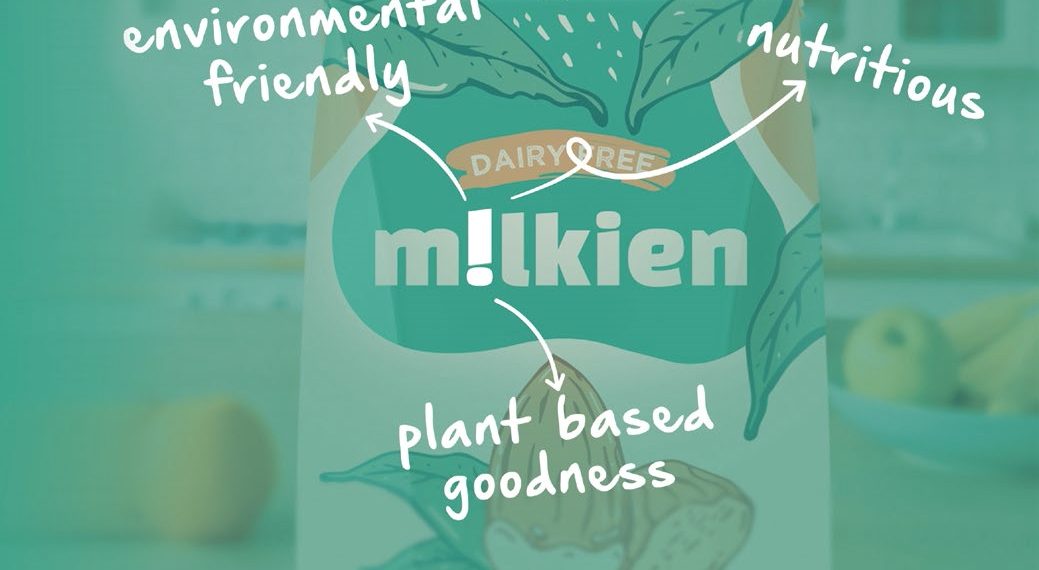M!lkien is brand developing special tastes from plant-based materials. The company has a fame of offering best alternative to animal-based products. We conducted an interview with Türker Yaşın, Co-Founder & Ceo of m!lkien, about their success story. Full text of this exclusive interview follows:
Can you tell us more about m!lkien brand?
As the M!lkien brand, we work on plant-based foods that are innovative, healthy and have minimal environmental and animal impact, beyond traditional animal foods. For this purpose, we have designed delicious and eco-friendly products that are alternative to dairy with plant-based milks, which is our first product group. For the moment, we have Almond and Oat milks. However, we continue to work for much more innovative and functional foods and beverages in our laboratory.
While developing, we aim to develop and offer deliciously, low-calorie and nutritious products. It’s also important that what we use in ingredients. We are careful not to use any material that might be harmful to our products.
What does the word m!lkien mean?
Although it evokes a dairy brand at first glance, there is no “milk” in our brand, just like our products. We don’t use milk, but we have very good alternative as “m!lkien”. The “!” sign inside the m!lkien brand was also placed to draw attention to the sustainability, animal-friendly and nutritiousness of our products.
How are m!lkien plant-based milks different from animal-derived products?
When we examine the nutritional trends in developed countries in recent years, we see that plant-based nutrition is becoming increasingly popular. There are undoubtedly many reasons for this. The idea that vegan products are healthier than animal-sourced foods, the effects on the environment are much less, and the fact that animals are not used in their production can be listed as the main reasons why.
Unlike cow’s milk, our products contain much lower calories and saturated fat. We have identified oat and almond milk as our priority products. The biggest factor in our selection of almonds and oats was that these products were in the superfood category and had many benefits. In addition, we fortified the content of our milk with vitamins and minerals E, D, B2, B12 and Ca, which are the most common deficiency in adults.
Do you intend to produce different vegan products as a brand?
We take care to consider consumer needs when developing our products. We take into consideration consumer’s nutrition journey from end to end. We ask the question, what additional benefits can be offered to consumers to enhance this journey. Alternative to beef, chicken and fish meat, we are also working on vegan products in our Lab.
What are the differences between the contribution of your products to the environment from other brands?
Research shows that changing the habits of manufacturers and consumers is critical to decrease our environmental impact. An Oxford-backed study shows that even animal food with the lowest environmental impact has far more environmental impact than plant-based products.
It is also obvious that the carbon emissions, land use and clean water consumption values are much lower than dairy milk. We also use 100% recyclable packaging in our products.
One of our goals as a company is to be carbon neutral and we continue our work in this direction.
What is the difference between you and your competitors in the same market when the demand for vegan products has increased recently?
We are a brand that aims to create sustainable, social benefits, but it is most important for us that our products are really tasty and good because at the end of the day we are a company that sells products to our customers and the satisfaction of our customers is the key element for us.
We continue to follow the lean start-up methodology from the beginning of the project. We have a focus group consisting of individuals within our target customer base. We proceed by analyzing the opinions and suggestions of our focus group on many issues from the name of our brand to the functions we want to add to our products.
The best part of working on plant-based products is that it offers us great flexibility in innovation, and we aim to diverge in the market with the products we continue to work on.
How has the demand for vegan products changed with the pandemic?
With the pandemic, our lives have changed from various perspectives. Our daily life and eating habits have also been severely affected by this change. With this process, healthy eating and keeping the immune system strong became more important. Therefore, there has been a significant increase in demand in the developed markets. We expect this growth will be continued in the future.
How do you evaluate your position in your sector at domestic and abroad?
What are your current positions, strengths and plans in this market? We think it’s too early to assess that. Plant-based nutrition is changing from a niche trend to the mainstream and we are focused on bringing the best products to market in line with consumer needs.
As a core team, we have significant experience in FoodTech, FMCG and the supply chain. Coming from within the industry gives us a lot of capabilities. Our biggest motivation is to produce healthy products in a very dynamic and innovation-friendly area and to be doing a beneficial job for the environment and animal welfare.
You do not include protective additives in your products, what are your methods of maintaining protection for a long time?
We do not use potentially harmful additives such as preservatives, antibiotics and food colorants in our products. We use U.H.T pasteurization and aseptic filling technologies to keep our products durable for a long time. No chemical preservatives are used here, the product is heated and then cooled, destroying all harmful microorganisms in it. In this way, our plant-based milks can have a long shelf life while maintaining their nutritiousness.

















